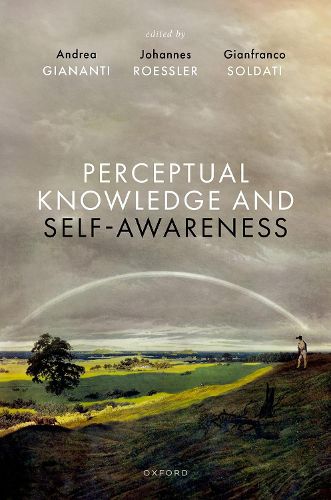Readings Newsletter
Become a Readings Member to make your shopping experience even easier.
Sign in or sign up for free!
You’re not far away from qualifying for FREE standard shipping within Australia
You’ve qualified for FREE standard shipping within Australia
The cart is loading…






There is a tendency, in contemporary epistemology, to treat 'perceptual knowledge' and 'self-knowledge' as labels for different and largely unconnected sets of philosophical problems. The project of this volume is to bring out how much is to be gained from treating the two topics as, on the contrary, intimately connected. One set of questions that comes into view when we do concerns the sense in which perceptual knowledge, as understood from the first-person perspective, seem to be 'direct'. In a famous passage, Austin contrasted reliance on what we call 'evidence' with the way perceptual experience 'settles' questions. How should we understand the difference? In what sense is perceptual knowledge 'direct', in contradistinction to evidence-based, inferential knowledge? A connected set of issues has to do with the relationship between the epistemic authority of perception and self-consciousness. Is the way perceptual experience 'settles' questions inherently manifest to the perceiver? Is a perceiver's awareness of (e.g.) seeing that p to be explained by reference to the very capacities at work in seeing that p? Or does it reflect the operation of some kind of second-order perceptual capacity? Consideration of these matters, in turn, prompts questions about the nature of the first-person perspective. 'I can see that p' is a first-person self-ascription. But does it express the distinctively immediate kind of knowledge commonly labelled first-person self-knowledge? How would an affirmative answer to this question bear on a philosophical understanding of the 'first-person perspective'? These are rough indications of some of the ways in which reflection on the relationship between perceptual knowledge and self-awareness promises to shed valuable light on both topics.
$9.00 standard shipping within Australia
FREE standard shipping within Australia for orders over $100.00
Express & International shipping calculated at checkout
Stock availability can be subject to change without notice. We recommend calling the shop or contacting our online team to check availability of low stock items. Please see our Shopping Online page for more details.
There is a tendency, in contemporary epistemology, to treat 'perceptual knowledge' and 'self-knowledge' as labels for different and largely unconnected sets of philosophical problems. The project of this volume is to bring out how much is to be gained from treating the two topics as, on the contrary, intimately connected. One set of questions that comes into view when we do concerns the sense in which perceptual knowledge, as understood from the first-person perspective, seem to be 'direct'. In a famous passage, Austin contrasted reliance on what we call 'evidence' with the way perceptual experience 'settles' questions. How should we understand the difference? In what sense is perceptual knowledge 'direct', in contradistinction to evidence-based, inferential knowledge? A connected set of issues has to do with the relationship between the epistemic authority of perception and self-consciousness. Is the way perceptual experience 'settles' questions inherently manifest to the perceiver? Is a perceiver's awareness of (e.g.) seeing that p to be explained by reference to the very capacities at work in seeing that p? Or does it reflect the operation of some kind of second-order perceptual capacity? Consideration of these matters, in turn, prompts questions about the nature of the first-person perspective. 'I can see that p' is a first-person self-ascription. But does it express the distinctively immediate kind of knowledge commonly labelled first-person self-knowledge? How would an affirmative answer to this question bear on a philosophical understanding of the 'first-person perspective'? These are rough indications of some of the ways in which reflection on the relationship between perceptual knowledge and self-awareness promises to shed valuable light on both topics.